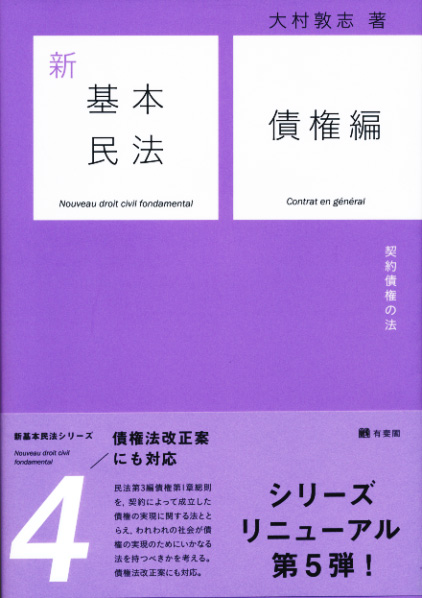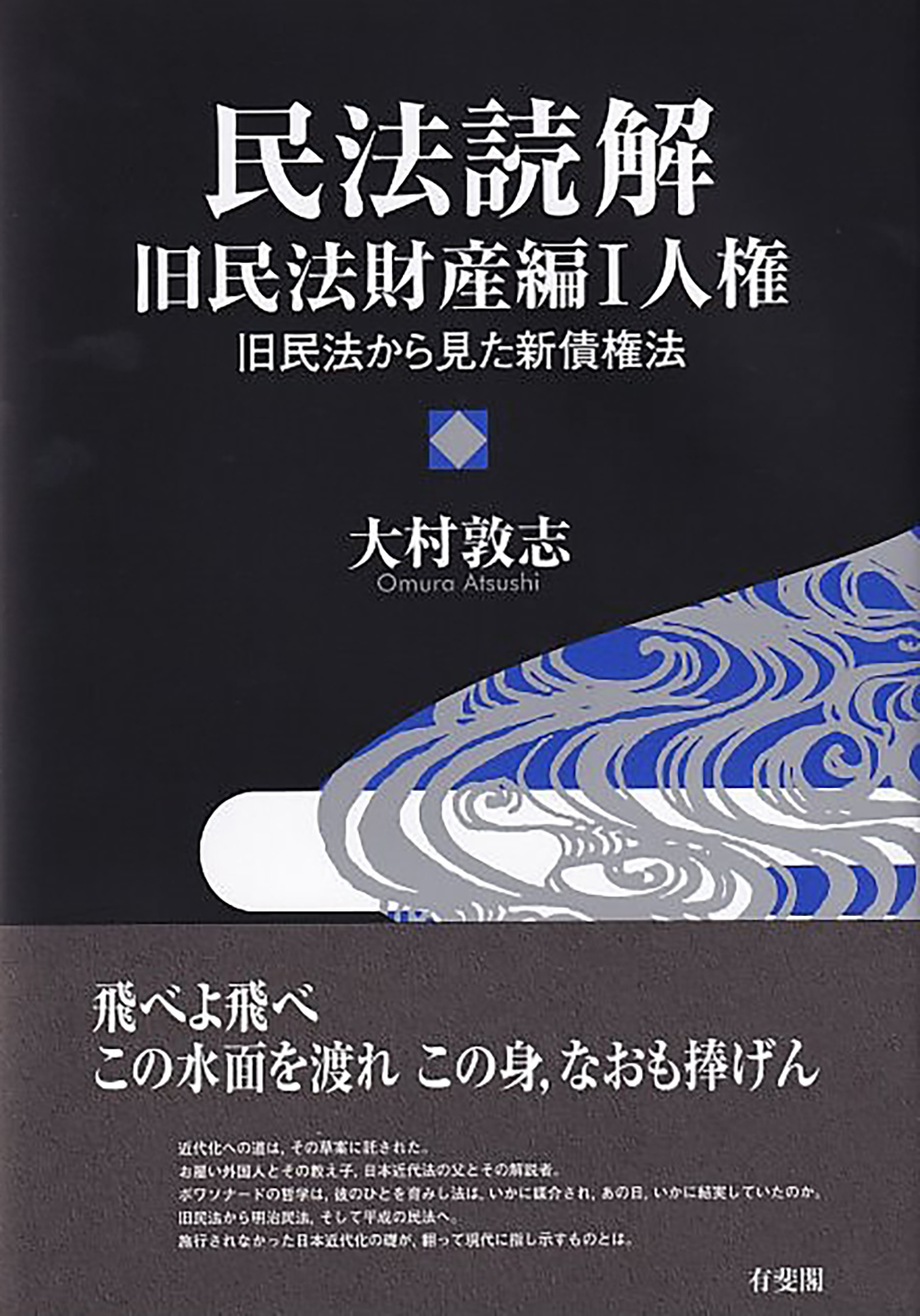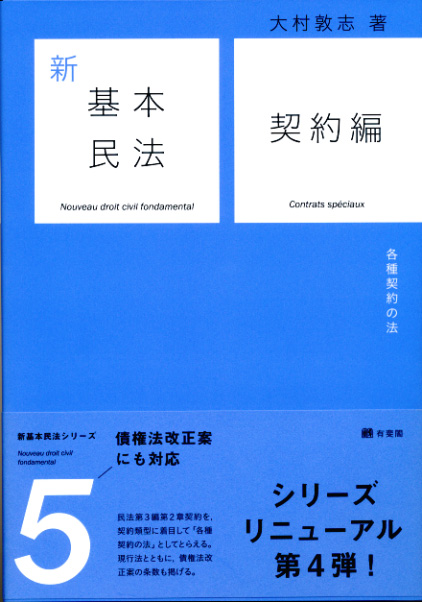
Title
Shin-Kihon Minpō 4: Saiken-hen (New Basic Civil Code Volume 4: Obligations - Law Governing Contractual Obligations)
Size
252 pages, A5 format, softcover
Language
Japanese
Released
September, 2016
ISBN
978-4-641-13752-3
Published by
Yuhikaku Publishing
Book Info
See Book Availability at Library
Japanese Page
The “New Basic Civil Code” series takes over the role played by the “Basic Civil Code” series, published from 2001 to 2004, aiming to provide a kind of “shared knowledge” for students in the faculty of law (or first year of law school) to facilitate their study. So what do we mean exactly by “shared knowledge”? My view is that it may be understood as a systematic understanding of the positive civil law. It is to grasp the whole picture of the norms of civil law with a certain degree of precision, while empathizing with a way of thinking embedded within the civil law. To put it another way, this series sees its mission as assisting readers in structuring and then internalizing the norms of civil law—a mission it shares with the old series.
In the ten years between when the old series was printed and the publication of this new series, of particular note were the establishment of graduate-level law schools, and the beginning of a full revision of the Civil Code. These graduate law schools drew significant attention when they were launched. While the rate of students passing the bar exam in fact decreased, the students at these schools were apparently more enthusiastic about the exam than they were about academic research. Nonetheless, the need to understand the basics will never disappear. We do not know in what way the Civil Code will be amended in the future, but as its reform continues, our need to gain a thorough grasp of its basic structure is ever increasing.
The earlier series consisted of three volumes (General Provisions, Property, and Obligations). For the new series, in aiming to orient it for use not only at the University of Tokyo Faculty of Law and Law School but outside the school as well, the material that had originally been covered in three volumes was re-edited and expanded into six, with the introduction of additional two volumes, on Family and Successions. The new series also incorporates the major amendment to the law of contract, known as the “revision regarding to obligations,” promulgated in June 2017 and scheduled to take effect in three years.
The volume entitled Obligations, to set it within the structure of the Civil Code, covers Part 3, Obligatons: Chapter 1 General Provisions. In this book, however, we understand these as areas of law concerning the fulfillment of Contractual Obligations. Conventionally, Chapter 1 General Provisions is a collection of the provisions on Obligations in general. The view of this book is that a large number of the provisions are based in particular on contractual obligations, and are connected to the satisfaction of obligation that have been once established.
This new volume on Obligations is centered on a contrast between Payment as a Voluntary Satisfaction of Claims, Chapter 1, and satisfaction of claims by other means, Chapters 2-4. Enforcement of Performance and Damage Compensation, Chapter 2, Obligee’s Subrogation Right and Obligee’s Right to Demand Rescission of Fraudulent Act, Chapter 3, Assignment of Claims and Assumption of Claims, Chapter 4; these methods are explained in relation to the satisfaction of claims. These volumes may not follow the structure of the Civil Code itself, but the way in which they are organized is designed to provide the reader with a richer experience, when used in conjunction with a ready copy of the Civil Code.
(Written by OMURA Atsushi, Professor, Graduate Schools for Law and Politics / 2018)



 Find a book
Find a book


 eBook
eBook











